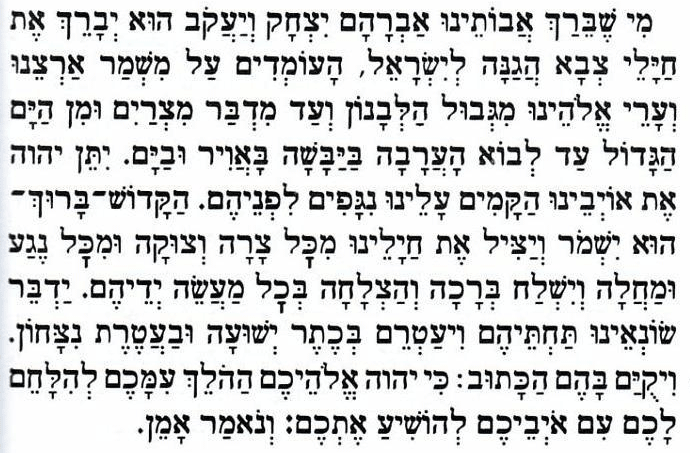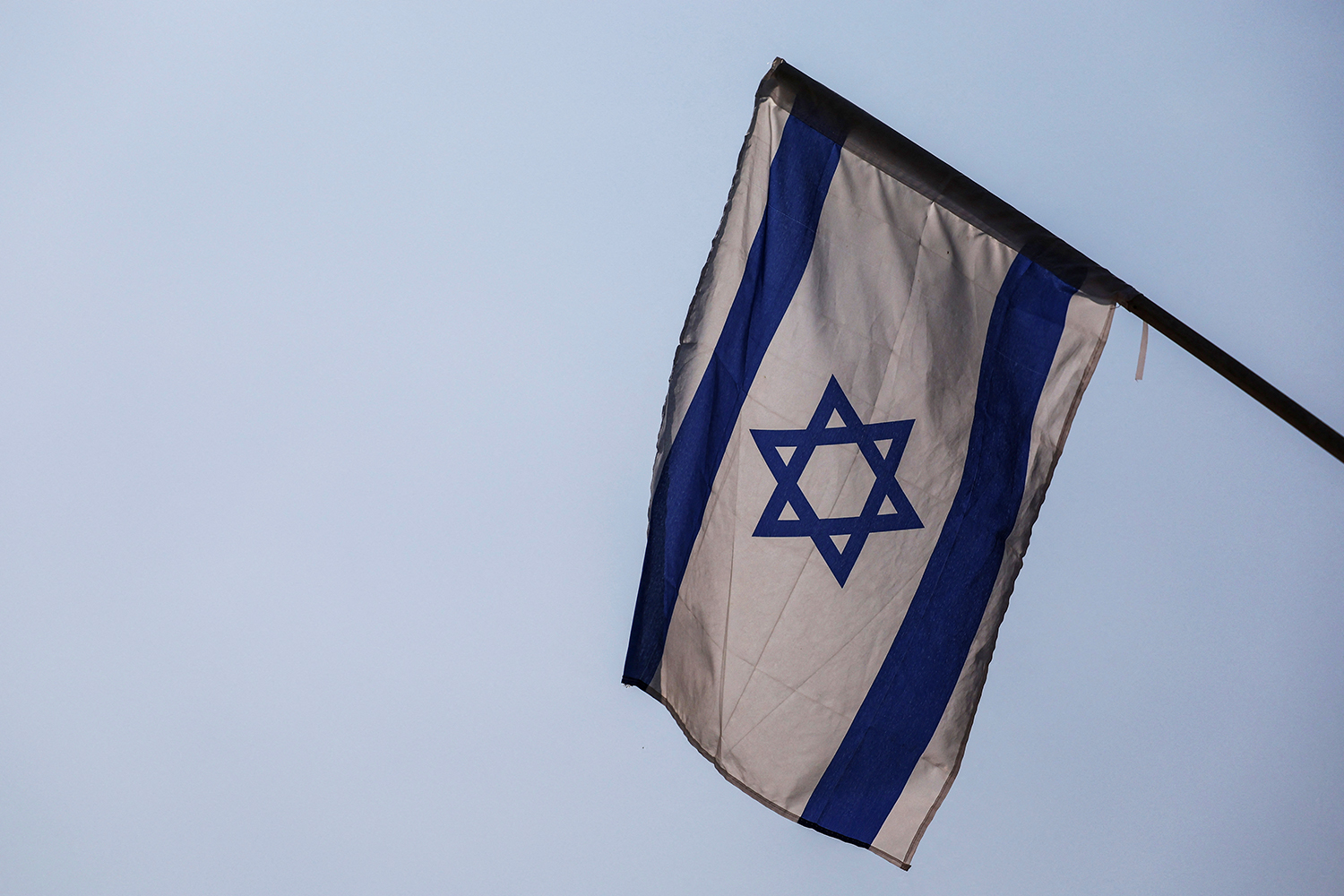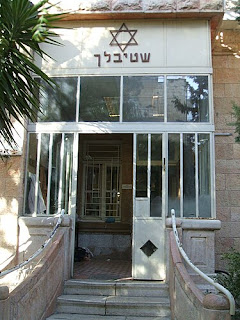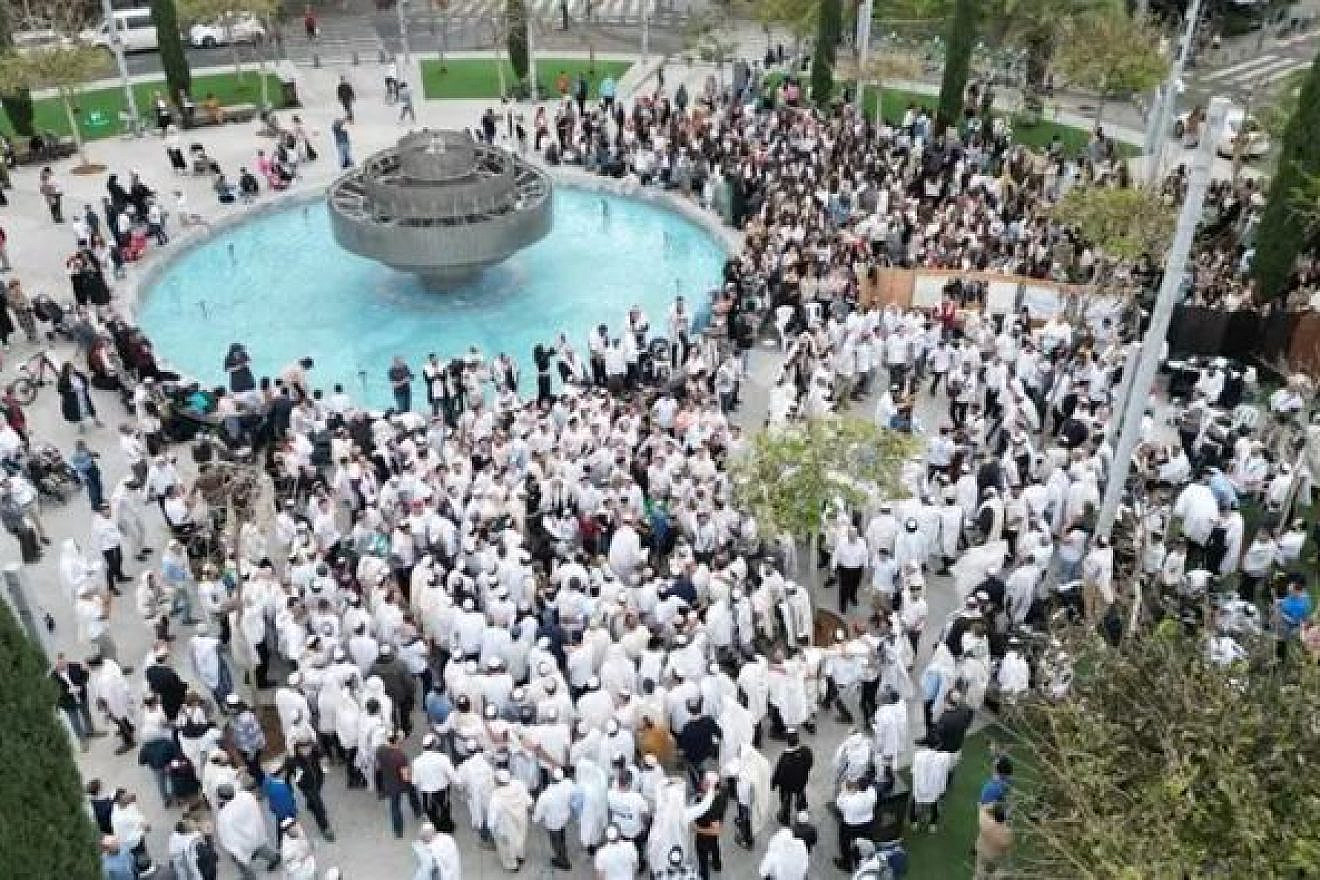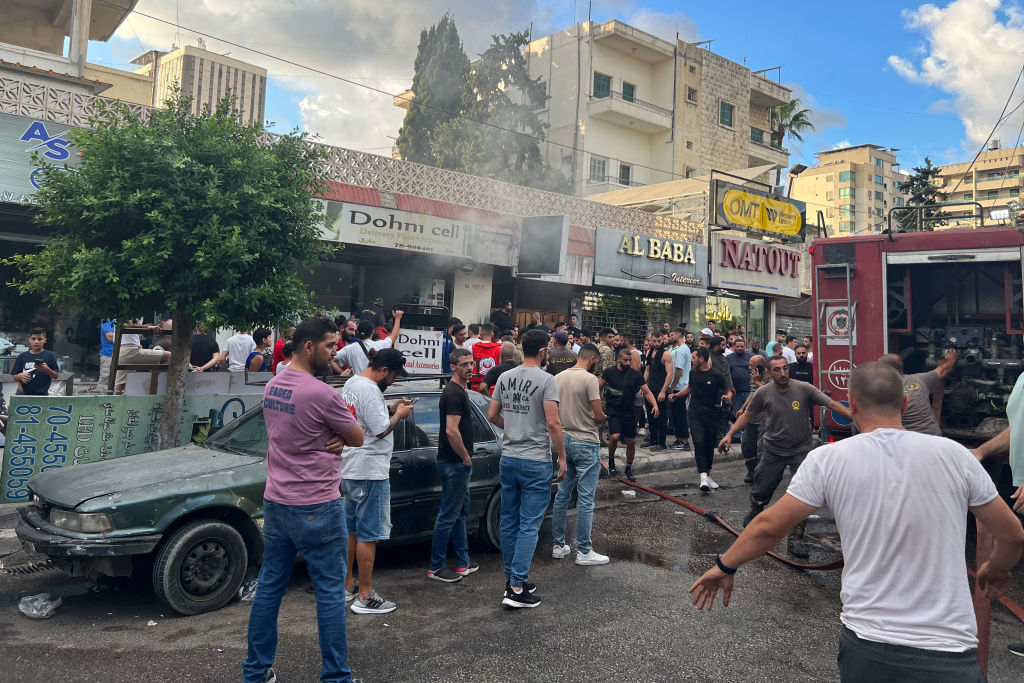I
want to say a few things about recent events in Israel. I’m sure I will
do future podcasts about this and speak with a wide range of relevant
experts. But, for the moment, I would like to say something brief that
stands a chance of being useful, as we watch the initial expressions of
support for Israel begin to decay, as it wages war in Gaza and perhaps
beyond.
As
many of you know, I spent years talking about the clash, as I see it,
between Western civilization and Islam. Specifically, I’ve spoken and
written about the connection between the actual doctrines of Islam and
jihadist violence. Of course, this violence has fallen out of the news
in recent years, especially since the collapse of the Islamic State.
Even I have stopped thinking much about it, but I’ve been under no
illusion that the problem has gone away. Those of you who have been
following my work for 20 years know that I’ve said everything I have to
say on this topic, ad nauseam. And I’m sure I’ll periodically just
repeat myself for the rest of my life—because eruptions of jihadist
violence, and the attendant secular moral confusion about it, will be
with us for generations.
However,
I don’t want to rehash any of my criticism of Islam here. I’ll just
briefly remind you of what I believe, which is that there is no
possibility of living in peace with jihadists. So, whether we want to
admit it or not, we are perpetually at war with them. And we must win a
war of ideas with everyone, both within the Muslim world and outside it,
who is confused about that—and there are legions of the confused. And
there is no place on Earth where the truth about jihadism is more
obvious or excruciating, and moral confusion about it more
reprehensible, than Israel today.
But
leaving all of that to one side, for the moment I’d like to make a very
simple point, that really shouldn’t be at all controversial—because it
doesn’t prejudge any of the questions that people might disagree about.
You don’t have to agree with me about Islam, or about the role it plays
in inspiring conflict. The point I’m making now says nothing about the
causes of the recent violence in Israel—and yet it cuts through all the
arguments and pseudo-arguments that attempt to paint some moral
equivalence between Israel and its enemies, or to justify the actions of
Hamas as though they were a response to Israeli provocations—to the
growth of settlements, or the daily humiliation of living under
occupation.
Incidentally, there has been no occupation of Gaza since
2005, when Israel withdrew from the territory unilaterally, forcibly
removing 9000 of its own citizens, and literally digging up Jewish
graves. The Israelis have been out of Gaza for nearly 20 years. And yet
they have been attacked from Gaza ever since.
But
even a statement like that wades too far in controversy. I want you to
step back… Whatever you think about the origins of this conflict,
whatever you believe about the role that religion plays here (or doesn’t
play), whatever you think about colonialism, or globalism, or any other
‘ism, whether you’re a fan of Noam Chomsky or Samuel Huntington, you
should be able to acknowledge the following claims to be both
descriptively true and ethically important.
At
this moment in history, there are people and cultures that harbor very
different attitudes about violence and the value of human life. There
are people and cultures that rejoice, positively rejoice—dancing in the
streets rejoicing—over the massacre of innocent civilians; conversely
there are people and cultures that seek to avoid killing innocent
civilians, and deeply regret it when they do—and they occasionally
prosecute and imprison their own soldiers when they violate this modern
norm of combat.
There
are people and cultures who revel in the anguish of hostages and
prisoners of war—who will parade them before cheering mobs, and often
allow them to be assaulted, or raped, or even murdered. They will
desecrate their bodies in public, and all of this carnage is a cause for
jubilation. Conversely, there are people and cultures who find such
barbarism revolting—and, again, would be inclined to prosecute anyone on
their own side who took part in it.
In
short, there are people and cultures who revel in war crimes—and who do
not hide these crimes or their celebration of them but, rather, proudly
broadcast their savagery for all the world to see. Conversely, there
are people and cultures who have given us the concept of a war crime as a
sacred prohibition—and as a safeguard in the ongoing project of
maintaining the moral progress of civilization.
One point to concede, and this will absorb all the
nuance and nonsense that is now percolating in the brains of many
listeners: It is, of course, true that we in the West have been on the
wrong side of these dichotomies in the past. Most Western armies,
including Israel’s, have at one time or another been guilty of war
crimes. And if you go back far enough, all of human conflict was just a
litany of war crimes. And you don’t have to go back all that far, in
fact, to find large pockets of Western culture that were morally
indistinguishable from what we now see in much of the Muslim world. If
you have any doubt about this, study the photos of white mobs
celebrating the lynchings that occurred in the American South in the
first half of the 20th century: where seemingly whole towns—thousands of
men, women and children—turned out as though for a carnival to watch
some young man or woman be tortured to death and then strung up on a
tree or lamppost for all to see.
Seeing the pictures of these people in their Sunday
best, having arranged themselves for a postcard photo under a dangling,
and lacerated, and often partially cremated person, is one thing, but
realize that these genteel people—who considered themselves good
Christians—often took souvenirs of the body home to show their
friends—teeth, ears, fingers, knee caps, internal organs—and sometimes
displayed them in their places of business.
So I’m not claiming that there are permanent
differences between groups of people. I’m talking about the power of
ideas that happen to be ascendant at any given time and place. I’m
talking about beliefs and whole worldviews that come into being in one
culture and have yet to come into being in others. The point, of course,
is that if we recognize the monstrosities of the past, we should
recognize the monstrosities of the present, and acknowledge that at this
moment in human history not every group has the same ethical norms
governing its use of violence. For whatever reason. Perhaps religion has
nothing to do with it.
Consider
just one of these norms: Whenever an armed conflict breaks out, some
groups will use human shields, and others will be deterred, to one
degree or another, by their use. To be clear, I’m not talking about the
taking of hostages from the opposing side for the purpose of using them
as human shields. That is appalling, and it is now happening in Gaza,
but it is separate crime. I’m talking about something far more
inscrutable—it’s astounding, really, that it happens at all—I’m talking
about people who will strategically put their own noncombatants, their
own women and children, into the line of fire so that they can inflict
further violence upon their enemies, knowing that their enemies have a
more civilized moral code that will render them reluctant to shoot back,
for fear of killing or maiming innocent noncombatants. If anywhere in
this universe cynicism and nihilism can be found together in their most
perfect forms, it is here.
Jihadists
use their own people as human shields routinely. Hamas fires rockets
from hospitals and mosques and schools and other sites calculated to
create carnage if the Israelis return fire. There were cases in the war
in Iraq where jihadists literally rested the barrels of their guns on
the shoulders of children. They blew up crowds of their own children in
order to kill US soldiers who were passing out candy to them.
Conversely, the Israeli army routinely warns people to evacuate
buildings before it bombs them.
Of
course, during times of war, it's common to dehumanize one’s enemy, to
describe them as barbarous and evil. And it is natural for ethical and
educated people to distrust such politically-charged language. But pay
attention: I’m describing concrete behaviors—behaviors that occur on
only one side of this conflict.
Just
consider how absurd it would be to reverse the logic of human shields
in this case: Imagine the Israelis using their own women and children as
human shields against Hamas. Recognize how unthinkable this would be,
not just for the Israelis to treat their own civilians in this way, but
for them to expect that their enemies could be deterred by such a
tactic, given who their enemies actually are.
Again,
it is easy to lose sight of the moral distance here—which is strange.
It’s like losing sight of the Grand Canyon when you are standing right
on the edge of it. Take a moment to actually do the cognitive work:
Imagine the Jews of Israel using their own women and children as human
shields. And then imagine how Hamas, or Hezbollah, or al-Qaeda, or ISIS,
or any other jihadist group would respond. The image you should now
have in your mind is a masterpiece of moral surrealism. It is
preposterous. It is a Monty Python sketch where all the Jews die.
Do
you see what this asymmetry means? Can you see how deep it runs? Do you
see what it tells you about the ethical difference between these two
cultures?
There are not many bright lines that divide good and evil in our world, but this is one of them.
Of
course, there is much more to talk about when considering the ethics of
war and violence. And there’s much more to be confused about. For
instance, as this war proceeds, many people will consider the deaths of
noncombatants on the Palestinian side to be morally equivalent to the
kids who were tortured and murdered at the peace concert by Hamas, or to
the hostages who may yet be murdered and their murders broadcast on
social media. But they’re not. There is a difference between collateral
damage—which is, of course, a euphemism for innocent people killed in
war—and the intentional massacre of civilians for the purpose of
maximizing horror.
Simply
counting the number of dead bodies is not a way of judging the moral
balance here. Intentions matter. It matters what kind of world people
are attempting to build. If Israel wanted to perpetrate a genocide of
the Palestinians, it could do that easily, tomorrow. But that isn’t what
it wants. And the truth is the Jews of Israel would live in peace with
their neighbors if their neighbors weren’t in thrall to genocidal
fanatics.
In
the West, we have advanced to a point where the killing of
noncombatants, however unavoidable it becomes once wars start, is
inadvertent and unwanted and regrettable and even scandalous. Yes, there
are still war crimes. And I won’t be surprised if some Israelis commit
war crimes in Gaza now. But, if they do, these will be exceptions that
prove the rule—which is that Israel remains a lonely outpost of
civilized ethics in the absolute moral wasteland that is the Middle
East.
To
deny that the government of Israel (with all of its flaws) is better
than Hamas, to deny that Israeli culture (with all of its flaws) is
better than Palestinian culture in its attitude toward violence, is to
deny that moral progress itself is possible. If most Americans are
better than their slaveholding ancestors, if most Germans today are
better than the people who herded Jews into gas chambers, if the
students protesting this war on your college campus—who are so
conscientious that they lose sleep over crimes like “cultural
appropriation” or using the wrong pronouns—if they are better than the
racists and religious lunatics that inevitably lurk somewhere in their
family trees—then we have to recognize that there is no moral
equivalence now, between Israel and her enemies.
https://www.samharris.org/blog/the-sin-of-moral-equivalence
